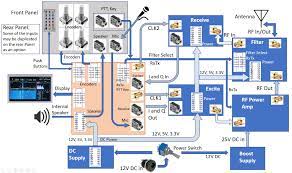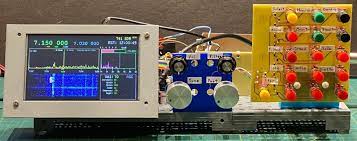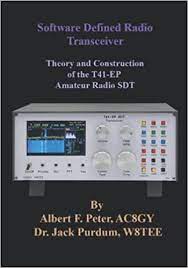Electronics Course
learn simple and practical electronics that you need for amateur radio
course format
Each topic is presented as 15-30 minute lecture followed a live demonstration of the principles of that topic. Normally the topic is presented live as part of the Thursday Zoom Session. Sessions are recorded and can be found here on this website or youtube. The presentation slides will also be available for viewing later, occasionally there my be some links in the presentation material.
You can follow along, build your own circuits or simulate your circuits on line.
Course series
The course in broken down in various sections. The order depends on the particular interest of the participants.
The session are organized as follows:
- Session 1 – Fundamentals I – Basic Certification
- Session 2 – Fundamentals II – Advanced Operations
- Session 3 – Antennas
- Session 4 – Radios
- Session 5 – Kit Building
- Session 6 – Microcomputer / Computers / Coding
It's Time to Start Your Electronics Adventure
From antennas to amp to computer to filters to radios to Z matches….and everything in between!

Circuits / Theory
Once you know the theory you can design you own circuits. It can be simple or more complex. This is the layout of the modules of the T41 SDT - Software Defined Transceiver. We will be building the T41 in class

Breadboarding / Prototyping
After you have designed the circuit you need to breadboard or prototype to see if it works. You may stop here if it works and you are happy with the layout. Or you may want to build more than one, design a PCB for it or even make a kit of it.

Kits
Fuerat aestu carentem habentia spectent tonitrua mutastis locavit liberioris inistra possedit.

Microcomputer / Computers
Learn how microcomputer and computers are used in amateur radio. See how computers are connected to amplifiers and antenna. Discover the world of coding (how the computer actually does you want it to do). Learn how to code.
Why this Electronics Course?
We don’t want to make you electrical engineers but you need to know how things in ham radio work. Topics are presented in a level that is suited to you as a radio operator. You can always learn more if you are particularly interested in a topic area
- Simple lectures (10-30 minutes) No 1-3h lectures.
- Practical demonstration of the theory
- You can build you own circuits or kits
What You Get
A jump into the unknown.
- Knowledge of electronics
- Practical advice
- Do it while having fun!
Recent Electronic Course Postings:
- Findings on the Toughbook CF-31 Mark 3
- Antenna Test – April 13, 2023
- Antenna Test – April 12, 2023
- 1-6 Electronics Course – Know Your Oscilloscope
- Antenna Test – April 11, 2023
- Antenna Test – April 7, 2023
- Antenna Test – April 6, 2023
- Portable HF Antenna – EFHW / EFRW / Xiegu X6100
- Portable HF Antenna – Super Antenna / Icom IC-705
- Antenna Test – April 5, 2023